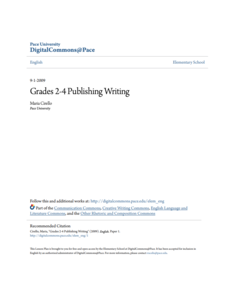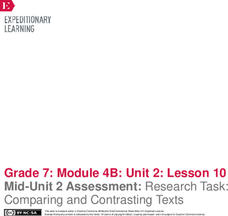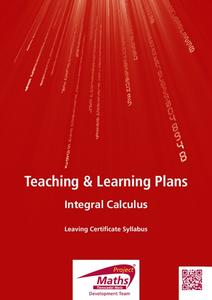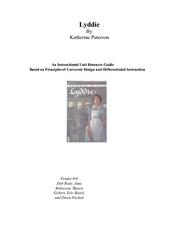EngageNY
Recursive Challenge Problem—The Double and Add 5 Game
Math is all fun and games! Use a game strategy to introduce the concept of sequences and their recursive formulas. The activity emphasizes notation and vocabulary.
PBS
Estimating Profit from a Job
Profit always seems to get everyone's attention. The same is true during a lesson plan on estimation. Learners use given information to estimate the cost of supplies for a painting job. They then develop a strategy for estimating the...
Minnesota Literacy Council
Grapes of Wrath and Pronouns
Many regard John Steinbeck's The Grapes of Wrath as the great American novel. The lesson plan combines a variety of strategies, including partner work, independent practice, creative writing, grammar instruction, and small group...
Pace University
Publishing Writing
Scholars become familiar with tagline literature with the help of the story, Alexander and the Horrible, No Good, Very Bad, Terrible Day by Judith Viort. After a read-aloud and whole-class discussion, leveled groups complete several...
EngageNY
Mid-Unit 2 Assessment: Research Task: Comparing and Contrasting Texts
It's the half-way mark! Pupils demonstrate understanding of unit standards by completing a mid-unit assessment. After reading an informational article about water management strategies, scholars complete a graphic organizer to identify...
K20 LEARN
Baking Cupcakes!: Fractions
Following an engaging video, mathematicians solve a word problem about baking cupcakes using fractions. Scholars practice different problem-solving strategies, then find different ingredient amounts for their recipes. Pupils solve a...
EngageNY
End of Unit 2 Assessment: Working with Two Texts - Reading, Listening, Summarizing, and Synthesizing
As a summative assessment for this unit on colonial trade, fourth graders listen to and read informational texts in order to demonstrate their ability to take notes, write summaries, and draw connections. Young scholars first listen as...
Ontario
Reading Graphic Text
Do learners really need to be taught how to read cartoons, comic books, and comic strips? Yes. Just as they need to learn how to read other forms of graphic text such as diagrams, photos, timetables, maps, charts, and tables. Young...
Ontario
Reading Informational Text
Learning to recognize the importance of the features of information text (i.e., titles, subtitles, endnotes, sidebars, etc.) is the focus of a reading activity designed for middle schoolers. Learners examine how these text features help...
Ontario
Critical Literacy—Media Texts
Media texts convey both overt and implied messages. As part of their study of media, class members analyze the language, form, techniques, and aesthetics in a variety of media texts.
University of California
Energy and Biomass Pyramids
Young scientists play tag as they act out the food pyramid in the ocean ecosystem. Energy circles pass from the smaller prey to the predators and at the end of the activity, a data chart and analysis questions allow pupils to apply their...
Project Maths
Integral Calculus
From derivatives to antiderivatives and back again. Building on the second lesson plan of the three-part series covering functions, learners explore the concept of an antiderivative. They connect the concept to the graph of the function...
Curated OER
Lyddie: An Instructional Unit Resource Guide
Katherine Paterson’s young adult novel Lyddie is the foundation of a differentiated instruction unit that not only explores the rise of industrialization and labor but women’s rights issues as well. After learners read the novel, they...
Curated OER
Is Bigger Always Better?
Explore rational numbers with the young mathematicians in your class. They will investigate decimals, fractions, and percents before ordering and comparing rational numbers. This multi-day unit includes differentiation activities and...
English Enhanced Scope and Sequence
Identifying Synonyms
"Let the hunt begin!" As an introduction to synonyms, second graders generate a list of word pairs that have similar meanings. The words pairs are written on sentence strips, cut apart, shuffled, and distributed to class members who must...
Virginia Department of Education
Mystery Iron Ions
Young chemists perform an experiment to determine if a compound is iron (II) chloride or iron (III) chloride. Then they determine the formula, balance the equation, and answer analysis questions.
Virginia Department of Education
The Rate of a Chemical Reaction
If your pupils think a catalyst is a list of their cats, then this might be the lesson for you! Young chemists study the effect of temperature, catalysts, concentration, and particle size on reaction rates during four different...
Virginia Department of Education
Atomic Structure: Periodic Table
The fifth lesson of seven in the series outlines an in-depth analysis of the periodic table. After direct instruction, pupils take turns practicing in the group before beginning independent study. The assessments include a quiz and an...
Virginia Department of Education
A Crystal Lab
Young chemists grow ionic crystals, metallic crystals, and supersaturated crystals in three different lab experiments. Observing these under a microscope allows pupils to compare the various structures.
Heritage Foundation
Congress's Territorial Powers, Implied Powers, Citizenship, and the Bureaucracy
An informative resource gives scholars a look into why the US Constitution placed certain federal powers over that of the state. A variety of activities about constitutional clauses helps to create meaningful learning.
National History Day
“Saving the Bear”: The Russian Expeditionary Force of World War One
How have Russian politics affected countries on a global stage? The discussion of the Russian Revolution and World War I begins with an analysis of primary resource letters. Learners finish with a project where they create a timeline of...
College Board
Civic Knowledge and Action: Voter Registration
What does the data say? Using provided voter data from the 2016 presidential election, scholars describe the data and identify questions they could answer by analyzing it. Learners then construct tables and use them to determine whether...
Virginia Department of Education
Inductive and Deductive Reasoning
Introduce pupils to the two types of reasoning, inductive and deductive. Classmates work in pairs or small groups to learn the difference between the two and apply these reasonings to develop valid conclusions.
EngageNY
Ferris Wheels—Using Trigonometric Functions to Model Cyclical Behavior
Have class members going in circles as they model the path of a Ferris Wheel using trigonometric functions. Building on the previous lesson in this series on transformations, learners use trigonometric functions to model wheels of...

























